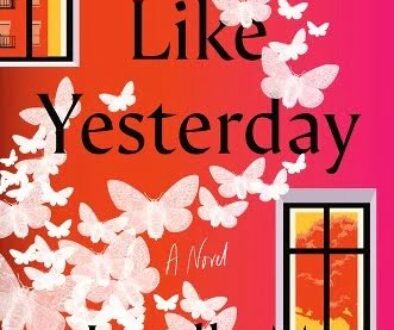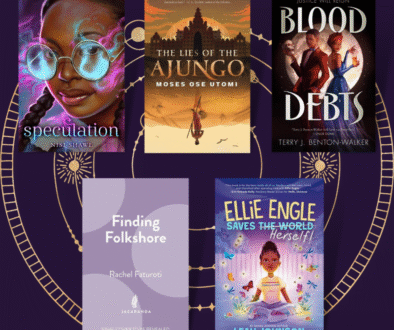The Plot Thickens: African Proverbs for All Ages
While picture books are largely used to convey information to children, the premise behind African Proverbs For All Ages makes key points for why people should reimagine how they engage with this genre. In this 40 page book by former university president and anthropologist Dr. Johnnetta Betsch Cole, four proverbs with similar guidance are compiled around a symmetrical illustration crafted by illustrator Nelda Lateef.
This arrangement lends for thought on why these proverbs were grouped together along with what greater guidance they can give beyond the words themselves. As someone with a personal interest in finding nuanced ancestral teachings to give the characters in the fiction I craft, I found my writing brain sparked by several of these entries, which were often reinforced by the lushness of the illustrations accompanying the proverbs. Some personal favorites are: “Traveling leaves you speechless, then turns you into a storyteller.”; “A lamp is not valued in the afternoon, but it is valued at night.”; and “A hunter with one arrow does not shoot carelessly.”
I could see how these proverbs could be passed down and transported to the characters I design who often grow up on the U.S. side of the diaspora. Each of them remind me not only of the sort of lessons my Southern relatives often conveyed to me growing up in Tennessee but also are worded in a similar tone and cadence. These are the traditions that I’m excited to see tie us to where our roots begin.
Beyond usage for writing and diasporic understanding, I can see guardians sharing this book with children of age to question the deeper meaning of proverbs and which lessons are to be learned from them. Every proverb in the book carries its own level of mental imagery which will definitely appeal to readers with vivid imaginations, further sparked by the marriage of bright ideas with complementary illustrations. African Proverbs For All Ages seems to be generally accessible for its target audience—all ages—but conceptually may appeal most to readers who tend to explore philosophical thought as they read because the proverbs are not literal. One can definitely see the expertise both collaborators brought to this book in a way that has opened my point of view on when to engage with the genre overall. This is a book that I recommend to fellow ponderers and erstwhile philosophers—of any age.



